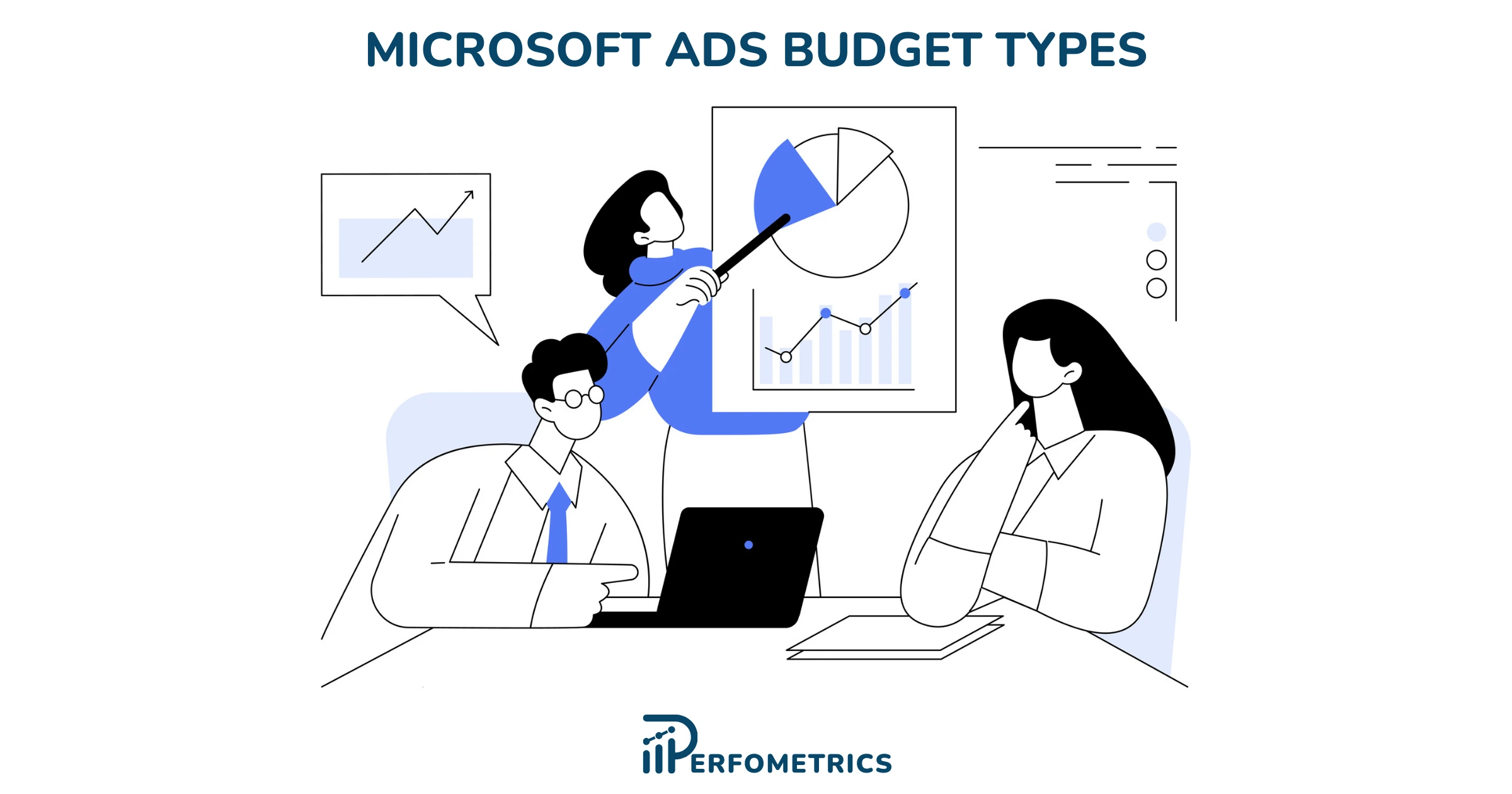Microsoft Ads Budget Types

In Microsoft Ads, a budget represents the maximum amount of money you’re willing to spend on a campaign over a specified period. It serves as a crucial tool for controlling campaign spending and ensuring that your advertising expenses align with your financial goals.
By setting a budget in Microsoft Ads, you can prevent your ads from running up excessive costs and maintain control over your campaign’s financial trajectory.
Microsoft Ads offers two budget types:
- Daily Budget: A daily budget sets a maximum spending limit for each day of your campaign. This option is particularly beneficial for advertisers who prefer granular control over their spending and want to avoid budget spikes or underutilization. It’s ideal for campaigns with consistent daily performance, ensuring predictable spending throughout the campaign duration.
- Shared Budget: A shared budget applies across multiple campaigns, allowing you to allocate a single budget for multiple campaigns. This option is particularly beneficial for advertisers who manage multiple campaigns and want to optimize their overall spending across their portfolios. It enables efficient budget allocation and facilitates the optimization of overall campaign portfolio ROI.
Advantages and Limitations of Microsoft Ads Budget Types
Each budget type in Microsoft Ads offers unique advantages and limitations. Before setting a budget in Microsoft Ads, it’s essential to consider the pros and cons and choose the one that best suits your campaign’s specific goals.
Advantages of Daily Budget:
- Precise control over daily spending: Set a maximum amount you’re willing to spend each day, ensuring that your budget is not exceeded.
- Prevents overspending on individual days: Avoid budget spikes by limiting your daily spending, and protecting your overall campaign budget.
- Suitable for campaigns with consistent daily performance: Ideal for campaigns in Microsoft Ads with predictable daily traffic patterns, ensuring consistent spending throughout the campaign.
Limitations of Daily Budget:
- May not be suitable for campaigns with fluctuating daily traffic: For campaigns with variable daily traffic, a daily budget may not provide enough flexibility.
- Requires ongoing monitoring and adjustments: Regularly monitor campaign performance and adjust the budget as needed to adapt to changing traffic patterns.
Advantages of Shared Budget:
- Simplifies budget management for multiple campaigns: Manage budgets centrally across multiple campaigns, eliminating the need for individual budget settings.
- Enables efficient budget allocation across campaigns: Divide your overall budget strategically across multiple campaigns, optimizing spending based on campaign performance.
- Useful for optimizing overall campaign portfolio ROI: Maximize the ROI of your campaign portfolio by allocating budgets in a way that aligns with overall campaign objectives.
Limitations of Shared Budget:
- Requires careful consideration of campaign performance and spending patterns: Analyze individual campaign performance and spending patterns to ensure that the shared budget is allocated effectively.
- May not be suitable for campaigns with significantly different performance or objectives: Campaigns with diverse performance or objectives may require separate budgets to optimize spending for each campaign.
Choosing the Right Budget Type for Your Microsoft Ads Campaign
The choice between a daily and shared budget depends on your specific campaign goals, target audience, and spending patterns.
Consider the following factors when making your decision:
- Campaign Performance: If your campaigns have consistent daily performance, a daily budget may be suitable. For campaigns with fluctuating traffic, a shared budget offers more flexibility.
- Budget Control Preferences: If you prefer granular control over daily spending, a daily budget is ideal. If you prefer centralized budget allocation across multiple campaigns, a shared budget is more appropriate.
- Campaign Objectives: Consider the overall objectives of your campaigns and how budget allocation can support those goals.
| Use Case | Budget Type | Explanation |
|---|---|---|
| Consistent daily performance | Daily Budget | Ideal for campaigns with predictable daily traffic patterns, ensuring consistent spending throughout the campaign duration. |
| Granular control over daily spending | Daily Budget | Suitable for advertisers who prefer precise control over their expenses and want to avoid budget spikes or underutilization. |
| Managing multiple campaigns with similar performance | Daily Budget | Useful for managing multiple campaigns with consistent daily performance, simplifying budget management, and ensuring consistent spending across campaigns. |
| Campaigns with fluctuating daily traffic | Shared Budget | More flexible option for campaigns with variable daily traffic patterns, allowing for adjustments to accommodate changes in traffic. |
| Managing multiple campaigns with diverse performance | Shared Budget | Effective for allocating budgets across multiple campaigns with different performance levels, optimizing spending based on campaign-specific needs. |
| Optimizing overall campaign portfolio ROI | Shared Budget | Suitable for maximizing the return on investment for your entire advertising portfolio by strategically allocating budgets across multiple campaigns. |
Our Final Thoughts
Effective Microsoft Ads budgeting is a strategic process that involves understanding the nuances of different budget types, aligning financial resources with campaign goals, and making informed decisions that optimize spending and maximize ROI.
By carefully evaluating the advantages and limitations of daily and shared budgets, you can make the most suitable choice for your campaign, ensuring that your advertising efforts yield the desired results.



